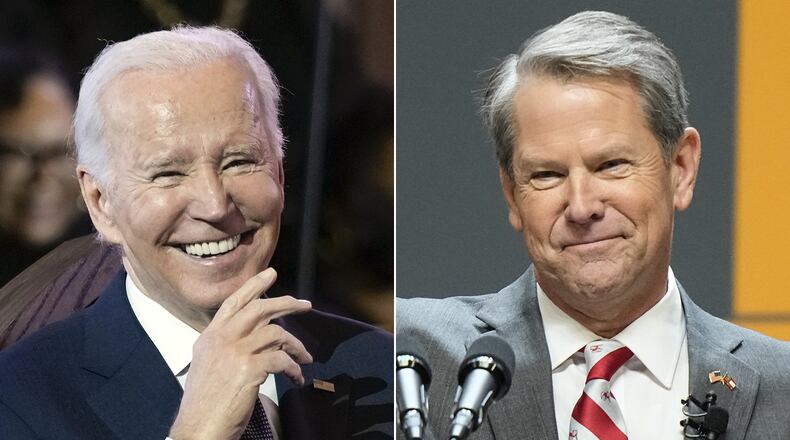The White House on Tuesday slammed Gov. Brian Kemp’s attempt to paint Georgia’s growing green energy hub as a product of state-level Republican policies rather than initiatives engineered by President Joe Biden to spur the electric-vehicle industry.
White House spokesman Haris Talwar said in a statement that the Biden-backed programs have drawn “massive private sector investment” to Georgia. He said it was a “simple fact” that Biden’s agenda is driving “new investment all across America.”
Talwar pointed to a Financial Times analysis that showed U.S. manufacturing commitments have doubled since the new laws took effect last year. He also highlighted other recent green energy projects in Georgia, including an expansion of solar panel manufacturer QCells, that directly benefit from the new tax breaks.
Kemp has long opposed the federal Inflation Reduction Act, which devotes billions of dollars in federal subsidies to speed a shift from fossil-based fuels to cleaner energy.
But he delivered his sharpest criticism of the law yet in a surprising setting: the Tuesday groundbreaking of an Anovion Technologies battery supplier that directly benefits from the surge of new federal spending.
The company was awarded a $117 million grant to spur domestic battery manufacturing under the federal infrastructure law, a $1 trillion package that passed with bipartisan votes — but no support from Republicans in Georgia’s delegation. And Anovion’s plant could benefit from other incentives under the federal tax measure that seek to hasten a shift away from fossil fuels.
Kemp said Biden and his allies continue to “put their thumb on the scale, favoring a few companies over the industry as a whole” with the host of incentives.
“When President Biden and others falsely try to take credit for Georgia’s success, don’t forget that next year is an election year,” Kemp said, pointedly praising the “unsung heroes” in his administration working to recruit businesses.
Biden became the first Democrat to carry Georgia since 1992 when he won the state three years ago. Both parties see Georgia as one of the few competitive battlegrounds in the 2024 race for the White House.
About the Author
The Latest
Featured




